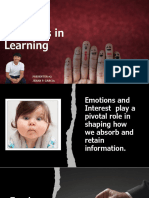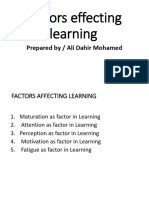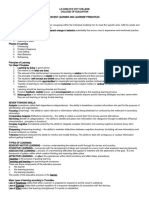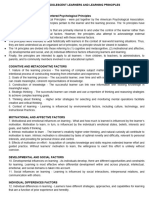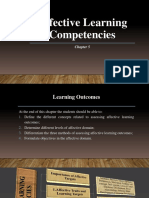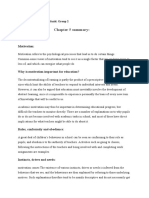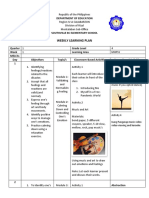0% found this document useful (0 votes)
24 views12 pagesCourse 1 2nd Half Suggestion
The document discusses various psychological concepts related to education, including attitude, emotion, instinct, emotional intelligence, motivation, and multiple intelligences. It highlights the importance of emotions in enhancing learning, fostering positive environments, and improving decision-making. Additionally, it outlines theories of motivation, such as McClelland's and Gardner's multiple intelligences, emphasizing their implications for teaching and learning.
Uploaded by
Aman AnsariCopyright
© © All Rights Reserved
We take content rights seriously. If you suspect this is your content, claim it here.
Available Formats
Download as PDF, TXT or read online on Scribd
0% found this document useful (0 votes)
24 views12 pagesCourse 1 2nd Half Suggestion
The document discusses various psychological concepts related to education, including attitude, emotion, instinct, emotional intelligence, motivation, and multiple intelligences. It highlights the importance of emotions in enhancing learning, fostering positive environments, and improving decision-making. Additionally, it outlines theories of motivation, such as McClelland's and Gardner's multiple intelligences, emphasizing their implications for teaching and learning.
Uploaded by
Aman AnsariCopyright
© © All Rights Reserved
We take content rights seriously. If you suspect this is your content, claim it here.
Available Formats
Download as PDF, TXT or read online on Scribd
/ 12












